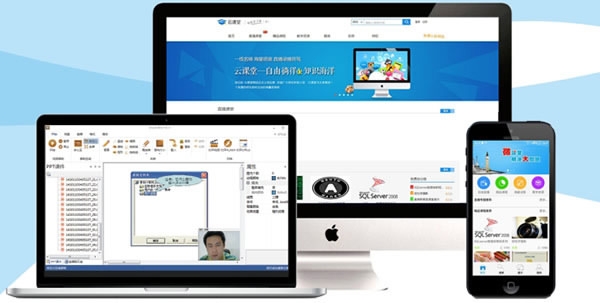
Editor's note: Zhang Can is an assistant judge at Beijing Intellectual Property Court. The article reflects the author's opinions, and not necessarily the views of CGTN.
For some industries like catering, aviation and tourism, the outbreak of COVID-19 has been a nightmare as lockdowns and social distancing policies have had a catastrophic impact on their normal trade, whereas the continuing spread of the pandemic has been an opportunity for the flourishing of some online industries.
Online education is one of them. With schools closed down, students have to take online courses, submit their homework and communicate with their teachers and classmates via the internet. After school, they receive additional online tutoring from private education institutions, as enrolled by their parents after paying a sum of tuition fee.
A market survey demonstrates that the value of China's online tutoring market will reach 44 billion yuan (six billion U.S. dollars) by the end of this year and is even expected to triple its size to 150 billion yuan (21.75 billion U.S. dollars) in the next few years.
Not long before the pandemic, a piece of news reported that the online tutoring startup company Yuanfudao, one of the top online education tech companies in China, attracted 300 million U.S. dollars in financial investment from Tencent and other investors. Now some believe that the outbreak of COVID-19 has made online education gain increasing popularity and might serve as a catalyst for further rapid development of the entire Chinese webucation industry.
Exciting the market prospect is, the competition there is extremely fierce as well. In order to lead the healthy and sustainable development of the industry, relevant market norms and regulations should not be neglected, among which intellectual property rights (IPR) protection rules should be put particular emphasis upon as the online education sector is considerably dependent on IP protection.
It is understandable that the core resources of an online tutoring company are their online courses and smart learning technologies, which are different from traditional pedagogical methods. Being knowledge-intensive, the online education industry is in need of rigid IP protection.
At first, a distinctive trademark or domain name is of great significance to an online education service provider as there are various service provider in this market. To save time cost in the digital age, customers need a tool to help them find what exactly they are looking for at the shortest time.
Trademarks definitely serve this kind of function. Thus, some private educational companies are seeking to take advantage of the names of renowned educational institutes, like Eton, Dulwich etc., freeriding their reputation so as to gain improper competitive advantages.

Compared with trademark infringement, the online piracy of the e-courses could be more detrimental to online education companies as these online resources are the most essential assets for them. However, due to the convenience of transmission of information on the Internet, infringement of copyright-able e-courses frequently occurs.
For instance, in a relevant case in Hangzhou Internet Court, the court holds that the disputed online course exhibits the producer's subjectivity and individuality and conforms to the requirement of originality of works of authorship. The disputed e-course video can be regarded as cinematographic works according to Chinese Copyright Law.
As a result, any unauthorized streaming of the disputed online course over information networks violate the legitimate right of the rights holder and should be immediately banned, and compensation be awarded.
As mentioned above, the difference between online education companies and tridiagonal ones are that they integrate advanced information technologies into teaching and learning, such as big data analysis, AI smart learning assistance and HD real-time image streaming.
In order to improve their competitiveness, some top online education companies have applied patent on their technologies. Besides, some other business resources, which do not meet the standard of a patent and cannot seek protection under patent law, can be protected as trade secrets, such as the customers' name list and other undisclosed business information which could bring commercial interests.
For example, another top online education company, VIPKid, sued a competitor for appropriating its customers' name list, which constitutes its trade secrets, claiming 8 million yuan (1.13 million U.S. dollars) in damages.
Additionally, unfair competition conducts, like false advertisement, and commercial discrediting arise more often than not, which not only impair rights holders' legitimate rights and consumers' interests, but also jeopardize the sustainable and healthy development of the whole industry.
With this round of opening-up policy, it is predictable that service sectors like education, medical care and finance and banking are becoming more open and international. For the government, as the online education industry is highly related to IP protection, to enhance IP protection can create a sound industrial eco-system and foster an internationally decent business environment.
For the market players, only if they respect other's intellectual property rights, prioritize students' interests and cultivate their own core competitiveness can they prevail in the market competition.
(If you want to contribute and have specific expertise, please contact us at opinions@cgtn.com.)